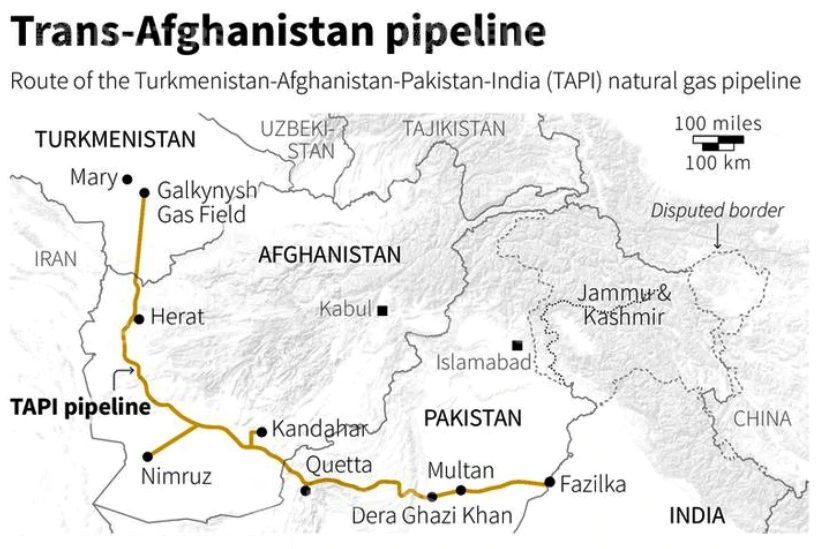International Relations
The Heart of Asia-Istanbul Process
- 31 Mar 2021
- 4 min read
Why in News
External Affairs Minister of India attended the 9th Heart of Asia-Istanbul Process held in Dushanbe, Tajikistan.
- He called for a “double peace” which means peace within Afghanistan and peace around Afghanistan and also said India supports the Intra-Afghan Negotiations (IAN).
Key Points
- The Heart of Asia-Istanbul Process (HoA-IP):
- It was founded in November, 2011 in Istanbul, Turkey.
- It provides a platform for sincere and results-oriented regional cooperation by placing Afghanistan at its center, in recognition of the fact that a secure and stable Afghanistan is vital to the prosperity of the Heart of Asia region.
- This platform was established to address the shared challenges and interests of Afghanistan and its neighbors and regional partners.
- The Heart of Asia comprises 15 participating countries, 17 supporting countries, and 12 supporting regional and international organizations.
- India is a participating country.
- Since its inception the process has become a cardinal element in regional cooperation and has created a platform for Afghanistan’s near and extended neighbors, international supporters and organizations to engage in constructive dialogue and to address the existing and emerging regional challenges through regional cooperation with Afghanistan at its core.
- Intra-Afghan Negotiations (IAN):
- It refers to the talks between the Afghan government and Taliban insurgents with the goal of bringing an end to nearly two decades of a conflict that has laid waste to the country and killed tens of thousands of combatants and civilians.
- The participants of intra-Afghan negotiations will discuss the date and modalities of a permanent and comprehensive ceasefire, including agreement over the future political roadmap of Afghanistan.
- The negotiations will cover a variety of issues, including the rights of women, free speech, and changes to the country’s constitution.
- The talks would also lay out the fate of tens of thousands of Taliban fighters as well as the heavily armed militias belonging to Afghanistan’s warlords who have amassed wealth and power since the Taliban were ousted from power in 2001.
- Regional Connectivity Initiatives:
- During the conference, the Afghanistan President appreciated the number of regional connectivity initiatives including the Chabahar port project, as well as the Turkmenistan-Afghanistan-Pakistan-India (TAPI) pipeline.
- India’s Stand:
- India believes any peace process must be Afghan-led, Afghan-owned and Afghan-controlled, has to respect the national sovereignty and territorial integrity of Afghanistan and preserve the progress made in the establishment of a democratic Islamic Republic in Afghanistan.
- The interests of minorities, women and vulnerable sections of society must be preserved and the issue of violence across the country and its neighbourhood has to be effectively addressed.
TAPI Pipeline
- TAPI Pipeline, also called Peace pipeline, is a 1,814km natural gas pipeline that originates from Turkmenistan and passes through Afghanistan and Pakistan to reach India.
- It aims to monetise Turkmenistan’s gas reserves and supply them to neighbouring countries to promote the use of natural gas and improve energy security.
- The project is being developed by TAPI Pipeline Company (TPCL), a consortium established by four individual state-owned gas companies Turkmengaz (Turkmenistan), Afghan Gas (Afghanistan), Interstate Gas Service (Pakistan), and Gas Authority of India and Indian Oil (India).
- The four countries signed an Inter Government Agreement (IGA) and Gas Pipeline Framework Agreements (GPFA) in December 2010 for the development of the pipeline.





